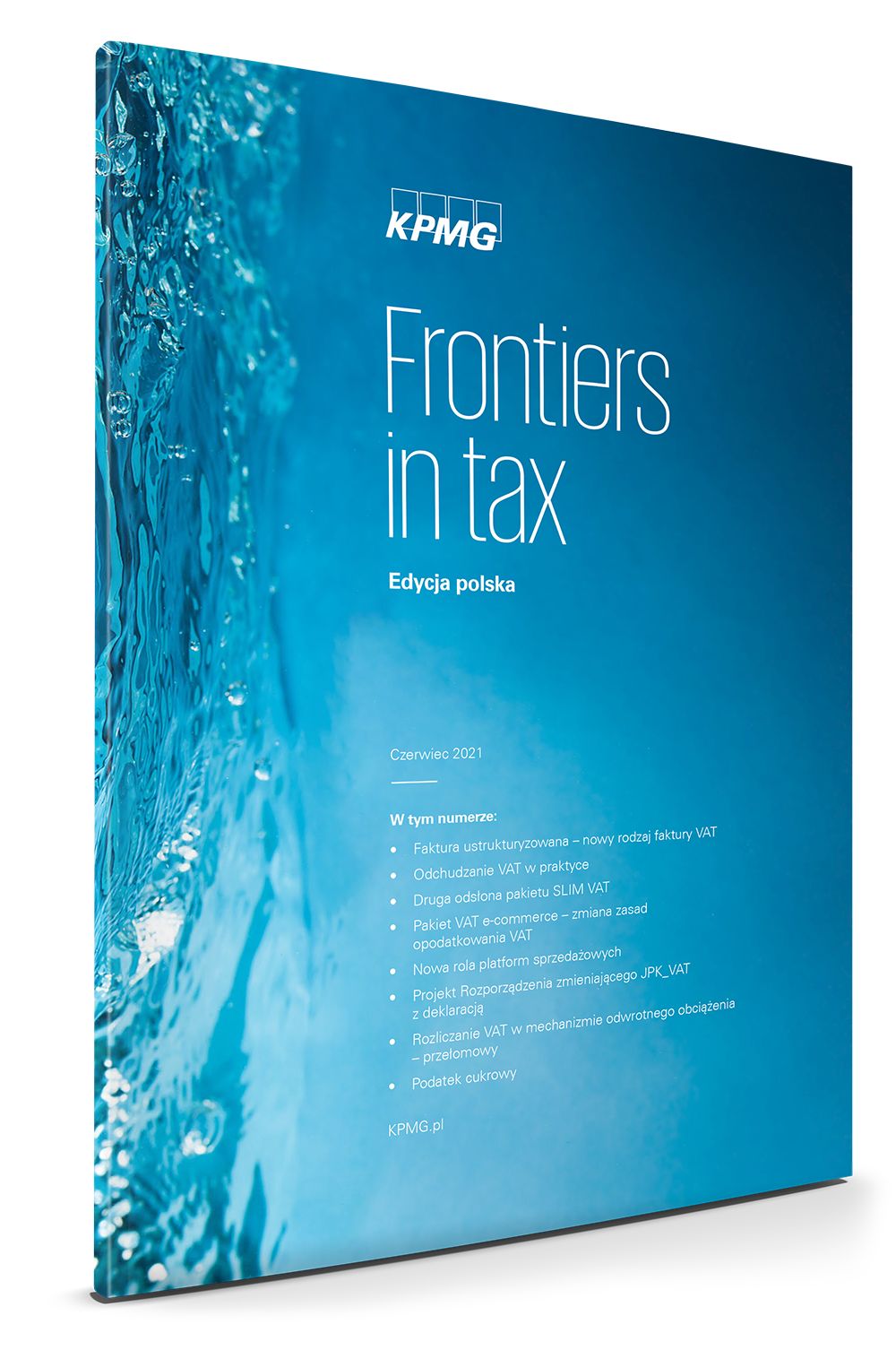In May 2021, the updated version of the draft decree amending the Decree of the Minister of Finance, Development Funds and Regional Policy on the detailed scope of data provided via VAT returns and VAT registers, dated 15 October 2019 (Journal of Laws, item 1988, as amended), was published on the Government Legislation Centre’s website.
The reasons for amendment have been numerous, including the fact that application of the standard audit file for tax JPK_V7, in its version effective as of 1 October 2020, has given rise to numerous interpretative doubts among taxpayers, with important practical challenges faced by large entities. Importantly, the proposed amendment takes into consideration the provisions brought by the VAT e-Commerce package, expected to enter into force on 1 July 2021.
Changes related to the implementation of the VAT e-Commerce package
The draft decree provides for extending the VAT return part of the JPK_V7 file with symbols to be used by taxpayers who in a given taxable period facilitated supplies of goods and provision of services by electronic interfaces, within the meaning of Article 109b(1) of the VAT Act. This is because taxpayers engaged in such activities are to be required to keep additional records thereof, as stipulated by Article 109b(1) (i.e. in terms of the activities they facilitate). Consequently, the extension is to provide tax authorities with better control over facilitating entities.
Furthermore, under the proposed draft decree, the “SW” symbol (indicating distance sales from the territory of the country referred to in Article 23 of the Act) and the “EE” symbol (used for telecommunications, broadcasting and electronic services, referred to in Article 28k thereof), used in the VAT register part of the JPK_V7 file, will be replaced by a single “WSTO_EE” marking. This is because, with the entry of the VAT e-Commerce package, the definition of distance sales is to be repealed and replaced with “intra-Community distance sales of goods”. Importantly, the package is to introduce a single threshold of EUR 10,000 (ca. PLN 42,000) for both intra-Community distance sales of goods and telecom/broadcasting/electronic services, which means that using two separate symbols to mark such activities will not be necessary.
Another new symbol introduced to the VAT register part of the JPK_V7 file will be “IED”, used for supplies of goods effected to the territory of the country by taxpayers facilitating such supplies by electronic interfaces or for supplies of this type outside special procedures (i.e. OSS or IOSS) in Poland or other Member State.
The "IED” symbol is to be used for analytical and control purposes, to better monitor the transactions within the scope defined by Article 7a(1-2) of the VAT Act.
The amended decree is expected to enter into force simultaneously with the VAT e-Commerce package, i.e. on 1 July 2021, with a portion of its provisions to become applicable as of VAT reconciliation for January 2022.The effective deadline will be extended to allow for the development of IT tools and adjustment of financial and accounting systems.
The extended vacatio legis will relate to the “IED” symbol, as well as the supplementary symbols to be used in the VAT return part of the file by taxpayers who in a given taxable period facilitated supplies of goods and provision of services by electronic interfaces, pursuant to Article 109b(1) of the VAT Act.
In turn, between July 2021 and December 2021, the "EE" marking will be used for transactions to which the "WSTO_EE” symbol would normally apply.
Other amendments
The draft decree brings the long-awaited waiver of the requirement to separately declare each receipt treated as a simplified invoice, to replace it with the possibility to present a collective report from the cash register. In fact, the existing episodic provisions were to expire on 30 June 2021, and there was a growing concern that from 1 July 2021 each receipt containing Polish tax number with a value of up to PLN 450 would have to be declared as a separate item in the JPK_V7 file.
Next, the decree is to bring additional amendments to practically all designations relating to groups of goods and services (GTU), mostly to reflect the content of the related individual tax rulings, issued in line with the laws in force as of 1 October 2021.
The designations of the groups of goods and services provided will be also harmonized in order to ensure compliance between the content of the decree and the logical structure of JPK_V7 files. For example, the group "01" (under the existing decree) is to be replaced by "GTU_01" (i.e. as in the current version of JPK_V7 structures).
At the same time, the decree clearly provides that the GTU designations will not be applicable to internal documents (marked as “WEW”) and cash register reports (“RO”).
Similarly, the designations identifying the type of transaction will be inapplicable to documents marked with the “RO” symbol.
In terms of provisions on bad-debt relief set forth by Article 89a(1 and 4) of the VAT Act, the Minister of Finance plans to introduce another obligation consisting in declaring the payment deadline or the date of payment made via the VAT register part of the JPK_V7 file, depending on the provisions under which the given transaction falls. Due to lack of interim provisions, it should be expected that these provisions are to become effective already as of VAT reconciliation for July 2021.
Due to numerous practical issues related to the reporting of "MPP" transactions, both when it comes to output and input tax, the “MPP” marking was entirely removed from the latest revision of the decree, both for purchase and sales transactions.
Some of the upcoming amendments pertain to related-party transactions (“TP”). The “TP” marking is not to be used when the links between the buyer and the supplier of goods or the service provider result only from the relationship with the State Treasury or local government units or their associations.
It should be kept in mind, however, that works on the draft decree are still underway, while the new versions of JPK_V7 structures have not yet been presented.
Authors:
Izabela Jędra, Assistant Manager, Indirect Tax Services, KPMG in Poland
Kamil Chmielewski, Supervisor, Indirect Tax Services, KPMG in Poland
Frontiers in tax. Polish edition | June 2021

This issue of the Magazine explores the key VAT-related changes, including introduction of a new type of e-invoice, commonly referred to as structured invoice, the SLIM VAT package, the VAT e-Commerce package, along with the latest developments related to the sugar tax.
In this issue:
- Introduction – Tomasz Bełdyga
- Structured invoice: a new VAT invoicing scheme – Łukasz Daniek
- VAT-slimming in practice – Tomasz Piotrowski
- The next edition of the SLIM VAT package – Natalia Kłoś, Patryk Roratowski
- The VAT E-Commerce Package: VAT Changes for B2C Trade– Izabela Jędra, Kamil Chmielewski
- VAT E-Commerce Package: Marketplaces and the new roles they are about to assume – Izabela Jędra, Kamil Chmielewski
- A draft Decree on amending the extended SAF_T file (JPK_VAT) – Izabela Jędra, Kamil Chmielewski
- Reverse charge on VAT: a landmark ruling of CJEU – Marek Bielawski
- Sugar tax – Zbigniew Sobecki, Rafał Roczniak
| Please login or register to download the PDF file |
|---|



